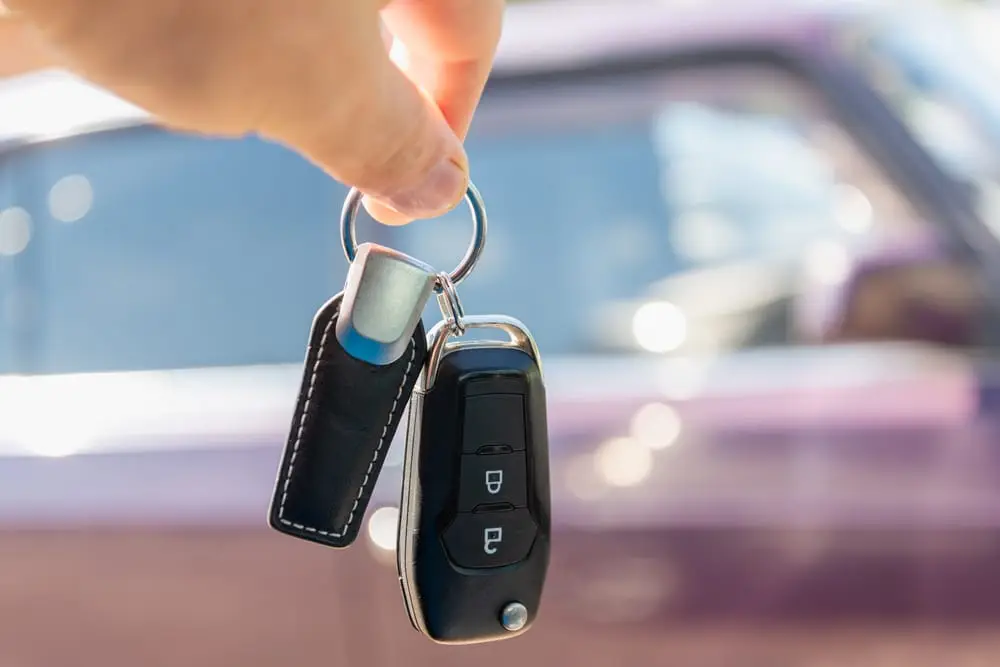What is a DMV Surety Bond / Motor Vehicle Dealer Bond Insurance?
A Motor Vehicle Dealer Bond is a dealer bond insurance company contract. It guarantees financial security if any violations or fraudulent activity occurs. This bond guarantees current dealers will follow all state regulations, pay taxes, and do business ethically.
To get the bond, dealer applicants must go through a credit check and apply with the necessary documents. After approval, they must pay an annual premium based on their credit review. Customers are further protected if a mishap happens with the bond.
Also, requirements for the bond vary by state. So, auto dealers should research their own state’s specifics.
Types of Auto Dealer Bond Insurance / DMV Surety Bond
A Motor Vehicle Dealer Bond is required by the Department of Motor Vehicles (DMV) to operate a Motor Vehicle dealership. Different types of bonds are available to dealers, depending on their services.
Types of Motor Vehicle Dealer Bonds:
| Type of bond | Purpose of bond |
| New Automobile Dealer Bond | Covers the sale of brand-new vehicles |
| Used Auto Dealer Bond | Covers the sale of used cars |
| Motorcycle Dealer Bond | Covers the sale of motorcycles |
| Wholesale Dealer Bond | Covers the sale of vehicles to other dealerships |
| Auto Broker Bond | Covers the sale of vehicles without a dealership |
Apart from the bonds mentioned above, dealerships could also require additional bonds, such as a Fuel Tax Bond, a Sales Tax Bond, or an Auctioneers Bond. These bonds depend on the state where the auto dealer conducts business.
Dealerships need a Vehicle Dealer Bond / DMV surety bond to stick to state laws, regulations, and ethical standards. This bond gives customers financial security should the dealer not fulfill their contract. A variation of this bond is necessary if a dealership primarily sells used or new cars. The table below shows more details about this Motor Vehicle Dealer Bond (DMV Dealer Bond):
| Type | New/Most Used Car Dealer Bond |
| Required By | All new or most used car dealerships |
| State Mandates | Yes |
| Bond Amount | Usually ranges from $10,000 to $100,000 |
This bond promises the dealership will act honestly and without wrongdoing. States must be posted by the dealership when applying for licensing.
It’s essential to know that different vehicle dealer bond insurance types can be required depending on the state. A Florida dealership owner found this the hard way when he forgot to get an extra Surety Bond alongside his Vehicle Dealer Bond. He got fines and penalties until he obtained the proper bond.
Stay updated with your state’s bond requirements, as ignorance can lead to penalties and lost business. Getting a Used Car Dealer Bond is like having an ace in the sleeve when buying a used car.

Used Car Dealer / DMV Bond
Motorcycle dealers need a special bond to avoid customer fraud and unlawful activities. This bond ensures the dealer follows state regulations, like paying taxes on time, providing correct title info, and not doing fraudulent activities. Used Car Dealer Bond
If the dealer violates the agreement, customers can file a claim on the bond to get back their losses. Every state has different rules for these bonds, like bond amounts and renewal terms. So, finding a reliable surety provider to help you understand local regulations is essential.
Pro Tip: Keep your bond up-to-date to avoid legal issues and license suspensions!
Motorcycle Dealer Bond
When running a motorcycle dealership, there are special legal rules to follow. These include getting a . This bond safeguards customers from any fraudulent or unethical behavior by the dealership. Motorcycle Dealer Bond
The table below has the necessary details of the Motorcycle Dealer Bond:
| Type of Info | Details |
| Purpose of Bond | Safeguards customers from fraudulent or unethical practices |
| Bond Amount | Varies by state regulations |
| Cost of Bond | Usually valid for one year |
| Duration of Bond | State and local government |
| Required by | State or local government |
Remember, the bond’s cost, duration, and amount can differ by state. So, get familiar with your state’s rules before obtaining the Motorcycle Dealer Bond.
Plus, having this bond reflects your commitment to ethical business practices. It shows you care about customer satisfaction and safeguards their financial investments.
How to get a DMV Surety Bond
This article will discuss securing a bond specifically for motor vehicle dealers, also known as a DMV Bond. Follow these easy steps to acquire a motor vehicle dealer bond and start your dealership with confidence.
- Step 1: Find a Surety Bond Provider
Start by finding a reliable surety bond provider like SuretyBonds.co. Fill out the online application and provide the necessary documentation, including personal and financial information. - Step 2: Undergo a Credit Check
After submitting your application, undergo a credit check. The bond provider assesses your credit score ranges and financial history to determine the risk of issuing the bond. A higher credit score typically results in lower premiums. - Step 3: Download the Bond
Once approved, we immediately Docusign and issue the motor vehicle dealer bond. The bond guarantees your customers that you will comply with the laws and regulations governing your dealership. The bond also protects your business from financial loss in case of customer disputes or legal action.

Determine the Required Bond Amount
Needing to Know Bond Amount?
When getting a motor dealer license, do you need a motor vehicle dealer bond? It depends. The amount varies based on state regulations, financial stability, and the creditworthiness of the dealership.
Below is a table with the following factors: state, bond Amount requirement, and minimum Personal credit score.
| State | Bond Amount | Credit Score |
|---|---|---|
| Alabama | $5,000 | 620 |
| Alaska | $10,000 | 620 |
| Arizona | $2,500 | 620 |
| Arkansas | $2,500 | 620 |
| California | $10,000 | 620 |
| Colorado | $5,000 | 620 |
| Connecticut | $5,000 | 620 |
| Delaware | $5,000 | 620 |
| Florida | $5,000 | 620 |
| Georgia | $10,000 | 620 |
| Hawaii | $10,000 | 620 |
| Idaho | $5,000 | 620 |
| Illinois | $2,500 | 620 |
| Indiana | $2,500 | 620 |
| Iowa | $2,500 | 620 |
| Kansas | $2,500 | 620 |
| Kentucky | $5,000 | 620 |
| Louisiana | $5,000 | 620 |
| Maine | $5,000 | 620 |
| Maryland | $5,000 | 620 |
| Massachusetts | $5,000 | 620 |
| Michigan | $5,000 | 620 |
| Minnesota | $2,500 | 620 |
| Mississippi | $2,500 | 620 |
| Missouri | $2,500 | 620 |
| Montana | $5,000 | 620 |
| Nebraska | $2,500 | 620 |
| Nevada | $10,000 | 620 |
| New Hampshire | $5,000 | 620 |
| New Jersey | $5,000 | 620 |
| New Mexico | $2,500 | 620 |
| New York | $10,000 | 620 |
| North Carolina | $5,000 | 620 |
| North Dakota | $5,000 | 620 |
| Ohio | $5,000 | 620 |
| Oklahoma | $2,500 | 620 |
| Oregon | $5,000 | 620 |
| Pennsylvania | $5,000 | 620 |
| Rhode Island | $5,000 | 620 |
| South Carolina | $5,000 | 620 |
| South Dakota | $2,500 | 620 |
| Tennessee | $5,000 | 620 |
| Texas | $10,000 | 620 |
| Utah | $5,000 | 620 |
| Vermont | $5,000 | 620 |
| Virginia | $5,000 | 620 |
| Washington | $5,000 | 620 |
| West Virginia | $5,000 | 620 |
| Wisconsin | $5,000 | 620 |
| Wyoming | $2,500 | 620 |
Please note that these are just general guidelines, and the requirements may vary from state to state. It is always best to check with the state’s motor vehicle department for the most up-to-date information.
Check with your local DMV or insurance provider for exact info. Although not all states require it, you may want one as it provides added security to customers and suppliers.
In the past, getting bonded was tough, needing lots of work from both sides. But now you can get one online in minutes! All you have to do is get the necessary documents.
Prepare Necessary Documents
Gathering info and documents to acquire a Motor Vehicle Dealer Bond can be overwhelming. But make it more comfortable by efficiently preparing and organizing all the required documentation! Here’s a 4-Step Guide:
- Research: Gather accurate info about your state’s requirements. Know the authorized bond companies and their conditions.
- Gather Documents: Ensure you have financial statements, business docs, ID proofs, tax info, etc.
- Complete Application: Fill up every section of the app precisely. Incomplete apps delay or disapprove the process.
- Double-check: Go through every doc one last time. Review any supplementary info if necessary.
Keep regional differences in mind. Professional consultants may help. Non-submission or incomplete docs? Denial of your bond request! When submitting reformed docs after rejection, be explicit about errors/missing info.
In some cities, cashless system incentives for electric vehicles reduced the strain on traditional auto manufacturers to offer dealership licenses. So fewer illegal dealerships/regulation issues need MVDBs. Ready to apply? Get your paperwork in order and selfies ready!
Submitting an Application for a Motor Vehicle Dealer / DMV Surety Bond
To become a motor vehicle dealer, you need to get a bond. This bond ensures dealerships are legal and honest and protects customers from fraud. Here’s a 3-step guide for getting your motor vehicle dealer bond:
- Go to Suretybonds.co
- Search for Motor Vehicle Dealer Bond, fill out the online application (with Credit check) and get a quote today!
- After approval, pay the premium amount of the bond, Docusign your bond, download it, and print it in color.
Getting a bond is essential to have a successful dealership. Don’t miss out on potential customers by skipping this major step in setting up your business.

Renewing and Maintaining a Motor Vehicle Dealer Bond
To maintain your Motor Vehicle Dealer Bond, you must renew it annually by paying the premium to the surety company issuing the bond. Failing to renew your bond could result in suspension or revocation of your dealer license. To keep your bond up-to-date, provide all required documents to the surety company.
Here is a table outlining the renewal process, including fees and deadlines:
| Renewal | Fees | Deadline |
|---|---|---|
| Annual | The renewal date is one year from the original issuance date | The renewal date is one year from the original issuance date |
Additionally, maintaining a good credit score is essential for your bond renewal. A low credit score may result in higher premiums or denial of bond renewal.
To ensure your bond remains active, avoid any actions that could result in claim activity against your bond. If a claim is filed against your bond, it may affect your ability to renew it.
We suggest reviewing your bond agreement carefully and consulting with a professional surety bond agent for any questions or concerns. Maintaining a good reputation and fulfilling all bond obligations is the key to keeping your Motor Vehicle Dealer Bond up-to-date.
Don’t wait until the last second to renew your bond, or you’ll be racing against time like a driver in a high-speed pursuit.
Understanding the Bond Expiration Date
The Motor Vehicle Dealer Bond end date is crucial for dealers. Knowing when to renew it is critical to avoiding legal issues.
A surety bond is needed before a dealer can operate. Each state’s bond requirements differ, so always check with the relevant agency. Bonds usually expire annually. So, dealers must file renewals and pay premiums regularly.
Staying up-to-date with bonds is vital for motor vehicle dealer licenses. Good standing requires regular filing and payment of premiums. Find a reliable bond producer who knows your state’s regulations.
Delaying renewal or payment could mean penalties. Dealers may also be ineligible for new products and services until their bonds are reinstated. Don’t risk it – keep your bond up to date!
Renewing Your Motor Vehicle Dealer Bond
Renewing the bond is crucial to a motor vehicle dealer’s operations. This requires monitoring when the bond is due for renewal to avoid any lapses in coverage. Both federal and state laws demand that dealerships have a valid surety bond to run legally.
To renew, dealers must submit updated info about their finances, credit history, and licensing status. This new bond replaces the prior one, protecting customers from dealer misconduct. Timely applications avoid penalties, suspensions, and revocations of dealership licenses.
Business ethics, transparency, and top-notch service are fundamental to proper bonding procedures. Keeping accurate records of the dealership’s finances smoothens renewal processing.
Recent events have spotlighted the importance of dealer-firm bonding. An instance was auto-lending manipulation schemes, where victims lost millions through fraudulent dealership activities. This highlights how essential adequate surety bonding is to safeguard customers and preserve businesses’ reputations.
To stay on the right track, dealers must prioritize bond obligations – a little effort goes a long way. Neglect it, and you’re in for a bumpy ride!
Making Sure That You Meet the Bond’s Obligations
You must meet the bond agreement’s obligations as a Motor Vehicle Dealer. Regular & prompt renewals help stay compliant with state laws & regulations.
Review terms regularly and ensure dealership operations comply with guidelines. Keep records of vehicle sales, refunds & complaints. Communicate with bond agency or attorney for guidance on changes in requirements.
Failure to comply can be costly—legal fees, fines, suspension or loss of license, & other negative consequences. Don’t risk noncompliance – renew motor vehicle dealer bond & proactively work towards fulfilling its requirements. Save time & money by avoiding occasional scrambling to fix issues. Be proactive to protect the dealership from potential adverse outcomes.
Bad credit? Don’t worry; safety recall is more important than credit score.
What if You Have Bad Credit?
Getting a motor vehicle dealer bond can be challenging if your credit history is poor. However, there are options available to you. A way to overcome this is to offer collateral as security, such as a property or a savings account. This gives the bond issuer confidence that you will meet all your payment obligations.
Another option is to work with a surety bond agency that provides bonds for individuals with bad credit. These agencies assess your financial situation and offer solutions that meet your needs. Though the cost may be higher, it can allow you to secure a bond and begin your business activities.
Remember, having poor credit does not mean you cannot get a DMV bond. Explore your options and work with professionals to find a solution that works for you.
Even if your credit is worse than a used car’s transmission, there’s still hope for getting a bond provider.
Finding a Bad Credit Bond Provider
Finding a bond provider can be tricky if you’ve got bad credit. Look for one who knows how to underwrite bonds for poor credit situations. Also, work on improving your credit score. It’ll increase your chances of a bond being approved and get you better terms.
Expectations for Higher Rates and Conditions
If you have poor credit, be prepared for harsher conditions and higher interest rates when applying for loans or credit cards. Creditors may view you as a higher risk. They could charge more interest or fees to compensate for any potential payment default.
Weigh the risks and benefits of taking on debt. Some lenders offer loans for those with bad credit. These loans may have different terms, so it’s worth researching before applying elsewhere.

How a Motor Vehicle Bond Protects Consumers
Motor vehicle bonds protect consumers by providing them with financial compensation in case of fraud or negligence by a car dealership. The bond guarantees that if a dealer violates their obligations and causes harm to a consumer, the bonding company will step in and compensate the affected party. This helps to ensure that consumers are not left empty-handed in case of a breach of contract or illegal activity.
In addition to protecting consumers, motor vehicle bonds also promote honesty and integrity among dealerships by requiring them to comply with regulations and laws governing the sale of vehicles. This encourages dealerships to maintain high professionalism and conduct business transparently, reducing the likelihood of fraudulent activities.
It is important to note that motor vehicle bonds are not insurance policies and do not protect dealerships from losses due to accidents or damage to vehicles. Instead, they specifically protect consumers from financial loss due to dealership misconduct.
DMV Dealer Bonds Serve as a Financial Guarantee for Consumers
A Motor Vehicle Bond is a shield for consumers’ financial interests. It guarantees that dealers and manufacturers will follow all legal rules when dealing with clients. Customers can reclaim their money using the bond if the agreement is broken.
This bond also gives peace of mind when buying a vehicle. Knowing dealers and makers have these bonds suggests they are financially responsible and obey the law.
Furthermore, businesses must pass strict criteria to be eligible for a bond. This ensures only honest companies get bonds and act appropriately in the market.
Business.com states: “Small claims court could be an option, but getting your money back could take months or years.” Having a Motor Vehicle Bond makes this procedure more straightforward and comforts people in challenging circumstances.
The motor vehicle bond is like a superhero cape for the vehicle industry – it may not make them invincible, but it does help them feel safer.
A DMV Surety Bond Provides a Form of Security for the Vehicle Industry
The Motor Vehicle Bond is an excellent asset for the Vehicle Industry. It offers security and safety for everyone involved. This bond helps dealers and retailers guarantee customers they are safe from any financial losses related to undisclosed issues or liens.
Here’s an overview of the critical points associated with the importance of a Motor Vehicle Bond:
| Key Points | Description |
|---|---|
| Protects Consumers | The bond safeguards buyers from any financial loss when buying a vehicle. It covers any hidden issues or liens. |
| Provides Security | Dealerships and retailers have peace of mind knowing that their clients are protected. |
| Builds Trust | Motor Vehicle Bonds show customers that auto companies are serious about protection and quality transactions. |
Many people don’t understand what goes on in the vehicle industry. This bond helps ease worries and anxiety for both dealers and clients.
Since its introduction, the Motor Vehicle Bond has become a crucial element in motor vehicle sales worldwide. It provides an extra layer of security.
Avoid financial trouble with a Motor Vehicle Bond. Don’t get stuck in Neutral.
Conclusion.
Research companies that provide DMV Dealer Bonds.
Compare fees and terms.
Complete application forms.
Provide personal info, financial statements, and business details.
The bonding company reviews the info and determines the bond rate.
Get a quote for the cost of the Motor Vehicle Dealer Bond.
Frequently Asked Questions
Q: What is a motor vehicle dealer bond (DMV Surety bond)?
A: A DMV bond is a type of surety bond required by the Department of Motor Vehicles (DMV) that guarantees a licensed motor vehicle dealer will comply with state laws and regulations regarding the sale of vehicles.
Q: Who needs a Motor Vehicle Dealer Surety Bond (DMV bond)?
A: Any business or individual applying for a motor vehicle dealer license must obtain a DMV bond to demonstrate financial responsibility and compliance with state regulations.
Q: How much does an Auto Dealer Bond Cost?
A: The cost of a DMV bond varies depending on the state and the financial strength of the dealer. Generally, the bond amount is based on the number of vehicles sold yearly, ranging from $10,000 to $100,000.
Q: How do I get a DMV Surety bond?
A: To get a DMV bond, you must apply with a surety bond company licensed in the state where you will be operating. The company will evaluate your credit score and financial standing and provide a quote for the bond. Once you accept the quote and pay the premium, the bond will be issued and sent to the DMV.
Q: How long does a DMV Dealer bond stay in effect?
A: A DMV bond is typically valid for one year from its issuance date. It must be renewed annually as long as the dealer holds a valid motor vehicle dealer license.
Q: What happens if a dealer violates the terms of their DMV bond?
A: If a dealer violates the terms of their DMV bond, such as by engaging in fraudulent practices or failing to pay taxes or fees, a claim can be made against the bond. If the claim is valid, the surety company will pay the claim and then seek reimbursement from the dealer.


